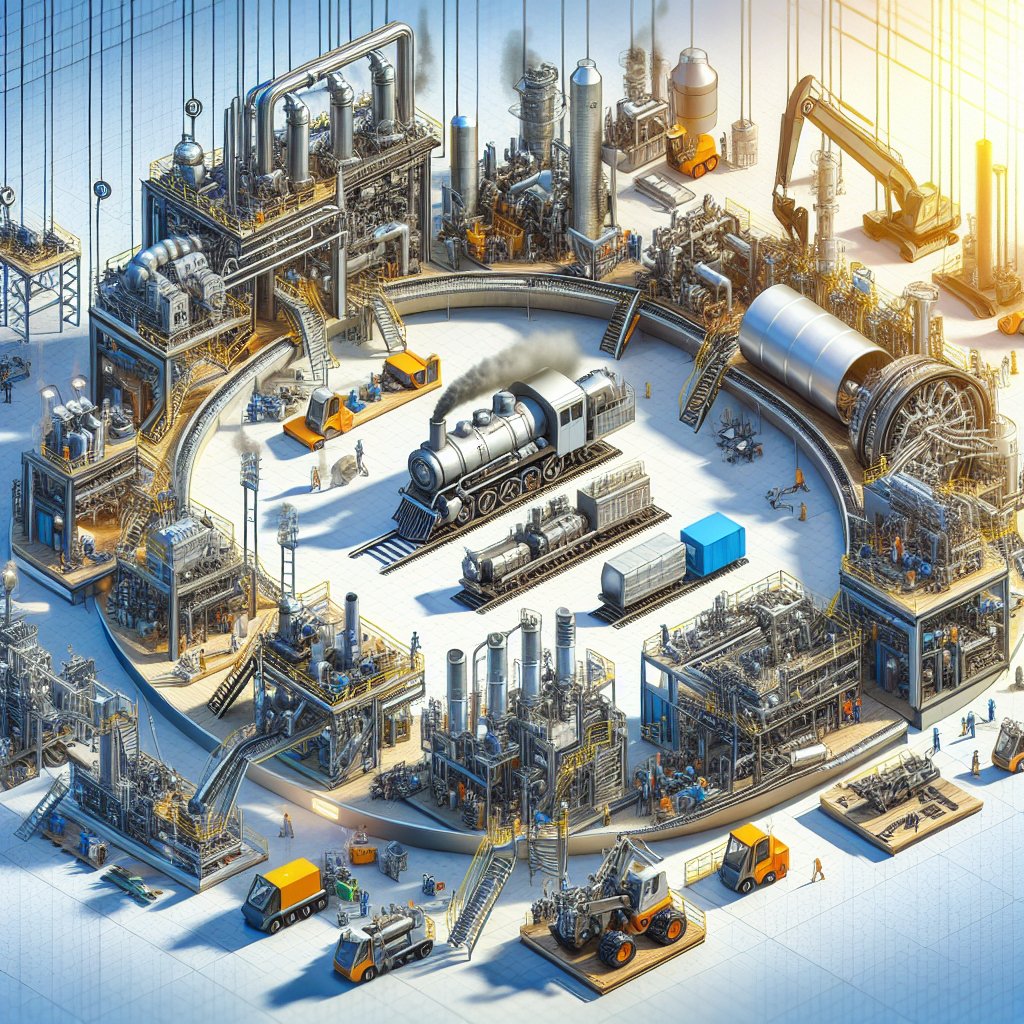
Industrial Machine Lifecycle Management is a comprehensive approach to overseeing the entire lifespan of machinery used in industrial settings, from initial acquisition to eventual decommissioning. This guide delves into the various stages of the lifecycle, offering insights into best practices, challenges, and strategies for optimizing machine performance and longevity.
Understanding the Lifecycle Stages
The lifecycle of industrial machinery can be broken down into several key stages, each with its own set of considerations and requirements. Understanding these stages is crucial for effective management and ensuring that machines operate efficiently and safely throughout their lifespan.
Acquisition and Installation
The first stage in the lifecycle of industrial machinery is acquisition and installation. This phase involves selecting the right equipment based on the specific needs of the operation, considering factors such as capacity, compatibility, and cost. Once the machinery is acquired, proper installation is critical to ensure optimal performance and safety. This includes setting up the machine according to manufacturer specifications and conducting initial testing to verify functionality.
Operation and Maintenance
Once the machinery is installed, the focus shifts to operation and maintenance. This stage is crucial for maximizing the efficiency and lifespan of the equipment. Regular maintenance, including routine inspections, lubrication, and part replacements, helps prevent unexpected breakdowns and extends the machine’s operational life. Additionally, operators should be trained to use the machinery correctly to avoid misuse and potential damage.
Challenges in Lifecycle Management
Managing the lifecycle of industrial machinery presents several challenges that can impact performance and cost-effectiveness. Addressing these challenges requires a proactive approach and a thorough understanding of the factors involved.
Technological Advancements
One of the primary challenges in lifecycle management is keeping up with technological advancements. As new technologies emerge, older machinery may become obsolete or less efficient. Companies must decide whether to upgrade existing equipment, invest in new technology, or find ways to integrate new advancements with current systems. This decision-making process involves evaluating the cost-benefit ratio and potential impact on productivity.
Cost Management
Another significant challenge is managing the costs associated with the lifecycle of industrial machinery. This includes initial acquisition costs, ongoing maintenance expenses, and potential costs related to upgrades or replacements. Effective cost management requires careful planning and budgeting, as well as exploring options for cost-saving measures such as predictive maintenance and energy-efficient technologies.
Strategies for Effective Lifecycle Management
To overcome the challenges associated with industrial machine lifecycle management, companies can implement several strategies aimed at optimizing performance and reducing costs.
Predictive Maintenance
Predictive maintenance is a proactive approach that uses data and analytics to predict when a machine is likely to fail or require maintenance. By monitoring machine performance and identifying patterns, companies can schedule maintenance activities before issues arise, minimizing downtime and extending the lifespan of the equipment. This strategy not only improves efficiency but also reduces maintenance costs over time.
Training and Development
Investing in training and development for machine operators and maintenance personnel is another effective strategy for lifecycle management. Well-trained staff are better equipped to operate machinery safely and efficiently, reducing the risk of accidents and equipment damage. Additionally, ongoing training ensures that personnel are up-to-date with the latest technologies and best practices, further enhancing machine performance and longevity.
Conclusion
Industrial Machine Lifecycle Management is a critical aspect of ensuring the efficiency, safety, and cost-effectiveness of industrial operations. By understanding the various stages of the lifecycle, addressing challenges, and implementing effective strategies, companies can optimize the performance and longevity of their machinery. As technology continues to evolve, staying informed and adaptable will be key to successful lifecycle management in the industrial sector.

